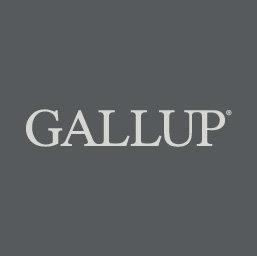Senate Majority Leader Mitch McConnell voted for bipartisanship at Camp David over the weekend, announcing that "We hope that 2018 will be a year of more bipartisan cooperation," while President Donald Trump added, "We hope that we're going to be able to work out an arrangement with the Democrats."
This burst of bipartisan sentiment certainly fits with the wishes of the American people, whose interest in their elected representatives compromising rather than sticking to ideological principles is at a new high. Even Republicans are more likely to say their representatives should compromise rather than stick to principles; Democrats lean strongly in that direction.
If bipartisan cooperation occurs -- spurred on partly by the looming government shutdown deadline on Jan. 19 -- it could begin to ameliorate, at least to a degree, the public's sense that government itself is the top problem facing the nation today. Plus, of course, it could help improve the low job approval ratings Americans give Congress (and Trump) and the negative top-of-mind reactions Americans have when they hear the words "federal government."
Bipartisan cooperation won't be a cure-all for the poor image of government. Certainly, perceptions of the way elected representatives in Washington go about their job are a significant factor in the people's low regard for government.
But it's not the only factor.
I think it's fair to say there will always be a tension between the people and their national government. Americans since the ratification of the Constitution some 230 years ago have wrestled with the proper role of government in their lives -- what government should do and how much power it should have over them. At any given time, a significant percentage look at government -- philosophically -- as attempting to do too much and as having too much power. At this point, about half of Americans hold these negative views relating to government's role and power.
So it's unlikely that -- outside of a major external threat to the country -- there will ever be a situation in which the public unanimously extols the virtues of the federal government.
But bipartisan cooperation in the legislative branch could certainly help. It's not as if Americans think that what the government does is worthless. One example is the military, an institution that is revered more than any other we test, while military officers have higher perceived honesty and ethics ratings than any profession other than nurses.
Plus, recent Gallup research shows that Americans give eight out of 13 government agencies above majority-positive ratings -- including several in the 60% and 70% range. Of the remaining five, all but one are in the 40% range. The U.S. Postal Service, which gets about $18 billion a year in subsidies from the federal government, is the top-ranked agency. The lowest-rated -- Veterans Affairs -- receives a higher positive rating than the 29% positive rating Americans give the federal government overall. Americans are quite positive, in short, about numerous things in which the government is involved.

